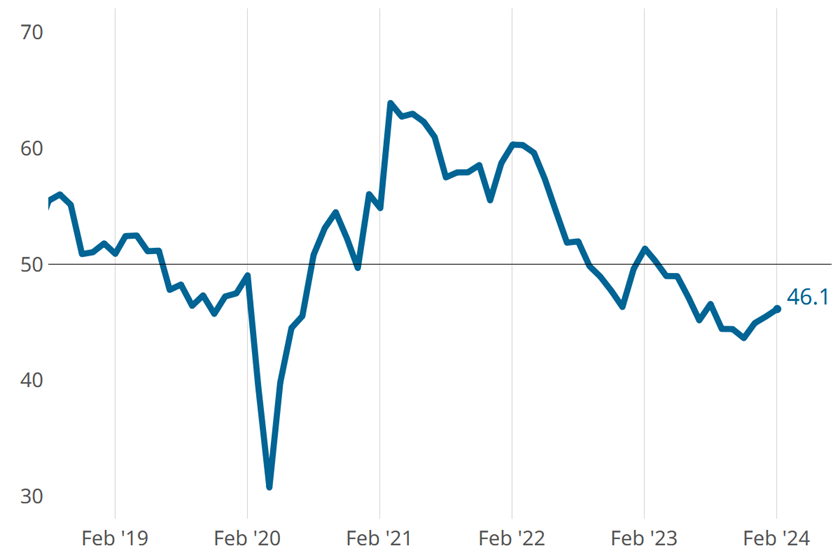Top Sales Trait Might Not Be What You Think
The essential qualities for success fall short without follow-through.
#management
What is the most important success trait for a sales person to possess? Some would argue that ambition is most important; in order to win business, they must desire to further their lot in life. Others might claim that competitiveness and a desire to defeat the opponent should top the list, since these fuel a drive to secure new business.
Many believe that a gregarious and outgoing personality are paramount, given the importance of building relationships with customers and prospects. Still, others might submit that empathy for other people, and the ability to put oneself in the shoes of the client are essential. It may be that technical expertise would be raised by some as the most crucial trait.
I have come to believe that while all of these are important, none of them is the most important success trait for sales success. Do any of the following five scenarios sound familiar?
Scenario 1
A sales team exhibits at a trade show. Much effort has been made ahead of the show to market the coating company’s presence. Sales people stand at the front of the booth, inviting prospects in to have a look and chat about how the exhibitor and prospect might be able to work together. Business cards are exchanged, literature is distributed, and by the end of the show the exhibiting company has secured more than 200 leads. An administrative team member records each lead in a spreadsheet, distributes the list to the sales team … and the prospects never hear from the exhibitor again.
Scenario 2
A company reminds its account executives to consistently request referrals from satisfied customers. One such customer provides five names of potential clients, complete with contact information. The account executive carefully records the referrals in their trusty notebook, turns the page, and the list is lost to history.
Scenario 3
A sales manager sits at their desk, scouring articles about potential clients and passing the leads via email to the sales team. The team members glance at the emails, move on to more urgent issues, and the potential opportunities are gone for good.
Scenario 4
A contract coater makes a five-figure investment in its website, convinced by a web developer that a focused effort in search engine optimization will lead prospects to the coater’s site, where the interested parties will complete a form requesting more information. The strategy works! Soon, web-forms are arriving by the dozens. They are distributed via emails to the sales team. See Scenario 3 for the result.
Scenario 5
A business development executive makes a concerted effort to reach out to potential clients via email in an attempt to arrange sales calls. A prospect responds that now is not a good time, but promises that in 60 days things will free up and an appointment can be set. When does the business development exec follow up? Never.
Twenty-five years of industry and business development experience and not only have I seen all five of the preceding scenarios, I have been guilty of committing each of them at one time or another. Solid gold sales leads forever lost in the abyss, or worse to a competitor, due to the simple lack of follow-through by members of the sales team. The truth is that an ambitious, competitive, gregarious, empathetic, technically-adept sales person who lacks the ability to follow up and follow through is virtually worthless.
I love posting creative and unexpected interview questions. Listening to how a candidate thinks about certain things, and probing deep into how they have or would handle certain circumstances enables me to learn much more about the candidate than I can by asking lame questions like “what are your three greatest weaknesses?”
One such inquiry I have begun making of sales candidates is “Tell me about the system you use to keep up with sales leads and projects.” It’s amazing to me how many candidates stumble over their answers, making it clear to me that they really have no system, opting instead to bounce from sales call to sales call, fingers crossed that they may trip over an order.
The best answers go something like this: “The company where I work utilizes a customer relationship management program (or ‘I use a spreadsheet’) that tracks customers, prospects, leads, contacts and sales opportunities. Any time I find a sales lead— from a trade show, a referral, reading a magazine or dropping in for a cold call—I record the lead in the CRM. I track the last action I took on each and schedule the next action, using a calendar function that provides a reminder for when I am supposed to follow up. I carve out an hour a day to review each of my reminders and take the appropriate action. This way I never overlook anything.”
What is the most important success trait for a sales person? Ambitious, competitive, outgoing, technically smart people are great.
Perhaps the one with the best system for following up on sales leads will bring the most value.
Originally published in the August 2017 issue.
RELATED CONTENT
-
Be Prepared: Managing Environmental Inspections
Is your shop ready for an environmental inspection? Preparation and documentation can help minimize your facility’s risk of noncompliance.
-
Bridging the Sales-Operations Divide
Matt Kirchner recently assembled a group of manufacturing industry sales and operations professionals to define "Rules of Engagement," a group comprised of seven individuals with combined experience exceeding 120 years. Here's what they came up with.
-
Paint Shop Life Cycle Management
Proper planning can help make your paint operations productive from cradle to grave
















